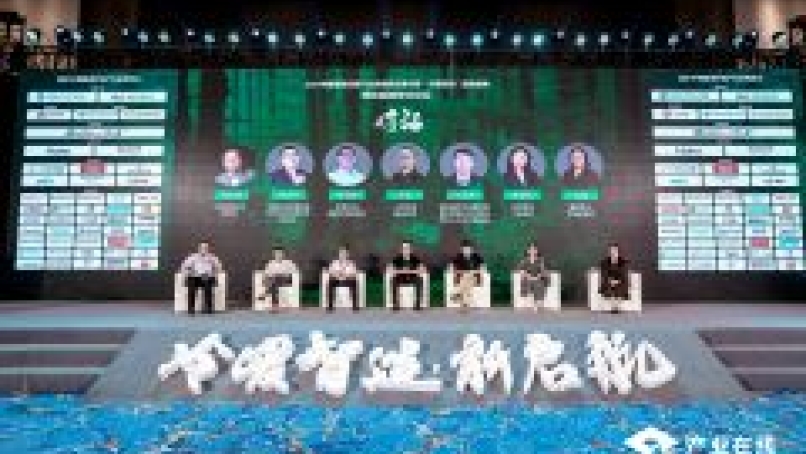Award-winning MCU RX72M has a wealth of built-in analog circuitry, such as the 12-bit ADC with over 20 channels, three independent sample-and-hold circuits, operational amplifiers, PWM timers, and the 24-bit Delta-Sigma ADC for motor drive control. In addition, RX72M integrates an EtherCAT slave controller with two independent ports for the easy and fast development or upgrading of various applications compliant with the Industrial Ethernet protocols, providing a complete solution for industrial Ethernet communication and motor drive integration. The main application fields include bus-type incremental servo motors or stepper motors, PLC remote input/output modules, industrial Ethernet bus-type general-purpose inverters, and compact industrial robotic arms.
On the occasion of the award, Johnson Tan, Senior Marketing Manager of MCU Division of Renesas Electronics, was interviewed by 2021 MCU Special Issue of China Electronics News on the theme of "Opportunities and Challenges in a Chip-Deficient Market". He remarked on market opportunities, product development, and technology trends in major MCU industry applications that were concerned by all.
First of all, as a well-matured semiconductor product, MCU sees increasingly extensive application fields, making it ubiquitous in-home appliances, automotive, medical, industrial control, lighting, and the Internet of Things. The development of MCU technology and products requires closer integration with different market applications because optimizing chip architecture and enriching interface functions are inseparable from the driving force of application demand.
When asked, "What are the characteristics of requirements on MCU product performance for emerging applications such as artificial intelligence, intelligent manufacturing, and intelligent driving? And what are the trends of MCU technology development in terms of CPU speed, architecture, peripherals, process, and so on", Johnson Tan made the following interpretation:
Intelligent manufacturing refers to the human-machine integrated intelligent system composed of intelligent machines and human beings. It adds intelligent activities to the manufacturing process, which widely extends traditional industrial manufacturing through the synergy between human and human, human and machine, as well as machine and machine. These extensions have led to essential changes in the production factors of enterprises. In particular, the productivity represented by informatization enables real-time sensing, dynamic control, and information services for large production process systems through computing, communication, and control technologies. All these demanding requirements rely on MCUs for powerful arithmetic, robust and fast communication capabilities, and accurate real-time control. Additionally, these requirements also shed light on the iterative direction for MCU technology development. For example, as the third-generation flagship of 32-bit MCU RX proprietary cores by Renesas, RX72M features a CPU clock speed of 240MHz (1416 CoreMark® runtime scores) and is the first MCU on the market to integrate an EtherCAT slave controller and rich analog circuitry for enhancing motor drive control in a single-chip solution. These capabilities are specifically designed to meet the requirements of intelligent manufacturing.
When it comes to "How to implement artificial intelligence in embedded products such as MCUs? And how to better adapt to edge computing?", Johnson Tan explained:
Edge computing is an extension of cloud computing to the edge. In the context of digital transformation for the entire industrial production, edge computing sinks resources and services to the edge, thus reducing interaction latency, alleviating network burden, and optimizing business services. Therefore, to enhance the edge computing capabilities, embedded MCU needs to have powerful computing capabilities, security authentication/Root of Trust (RoT) protection, low-consumption performance, high-speed communication, multiple communication protocol parsing, and even the integration of embedded AI algorithm derivation.
As intelligent factories evolve, it is without a doubt that more and more devices need to increase their communication and computing capabilities to meet the requirements of Industry 4.0. Intelligent factories that are both virtualized and digitalized will uprise the surge in demands of industrial network communication and on real-time. Meanwhile, diversified industrial Ethernet protocols make the communication of the whole system complex and costly, bringing difficulties for the prototype development and the rapid launch of products into the market. To address these issues, RX72M, the high-performance, single-chip, high-capacity MCU, emerges as the times require. Renesas has also offered a series of solutions based on RX72M to assist industrial customers in application development. For details on the RX7M network solution, please visit RX72M Network Solution.



